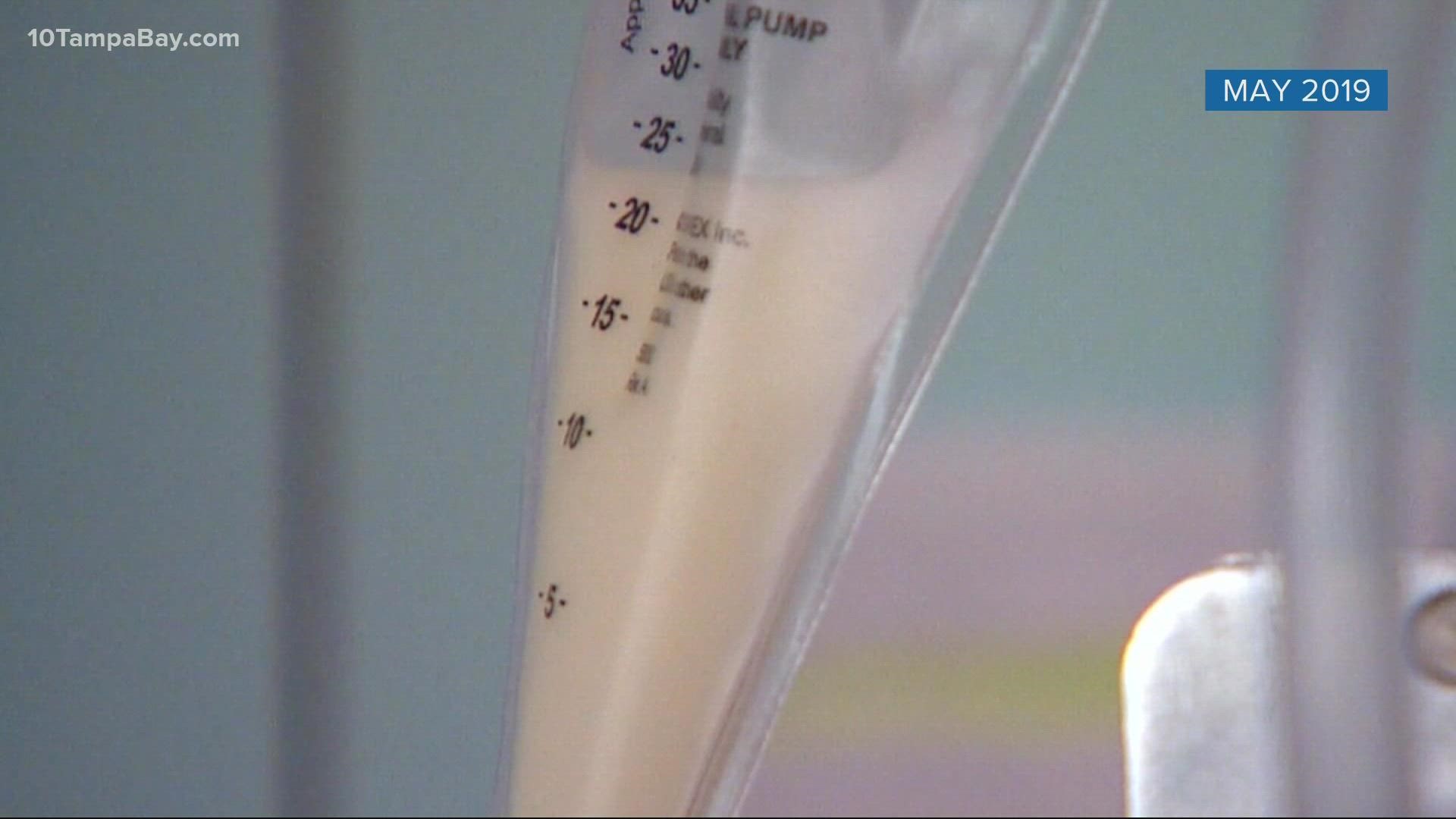TALLAHASSEE, Fla. — Florida House lawmakers Tuesday afternoon unanimously and swiftly passed legislation adding human donor milk to the minimum benefits required to be covered by Medicaid managed care plans.
The bill already passed in the Florida Senate, so it now heads to Gov. Ron DeSantis. If signed into law, it will take effect July 1.
According to Republican Rep. Fiona McFarland, who represents part of Sarasota, presented the bill in the Florida House. She says it is expected to help roughly 2,500 babies covered under Medicaid. Roughly 3,500 babies are born prematurely in Florida each year. They are cared for in neonatal intensive care units, or NICUs.
Doctors often prescribe human donor milk as part of their treatment to help everything from low birth weight to other serious and life-threatening conditions.
Breast milk is proven to provide vital nutrients, but it is expensive. In some cases, hospitals – especially in rural communities – cannot afford it. Families, even those with private insurance, also struggle.
McFarland said this legislation opens the door for more hospitals to afford the “liquid gold” and provide it to patients.
“In the vast majority of cases if you’ve got a baby that’s that premature there are a host of other costs that the family is dealing with. And so for Medicaid to pick up this cost now, not only will that alleviate a burden for parents, but it will also incentivize hospitals to start to be able to offer that,” she said.
The bill stipulates several things:
- The human donor milk must be prescribed and delivered in a hospital setting.
- The human donor milk – which is donated breast milk that is pasteurized, bottled, frozen and then sent to hospitals – can come from two sources: non-profit milk banks and for-profit human donor milk companies.
Mother’s Milk Bank of Florida is a non-profit that already supplies about 80% of donor milk to hospitals across the state and does not add anything to the donated milk during processing.
For-profit companies sometimes add fortifiers to the human donor milk. The initial legislation did not include those companies. McFarland says it was necessary to add in companies to meet expected demand. - At-home prescribed human donor milk is not eligible for reimbursement for babies under Medicaid plans. McFarland says the predicted cost to the state was too high and so it was removed. She hopes the state will be able to offer that in the future
As for costs, McFarland says adding human donor milk to the required minimum benefits covered by Medicaid will cost the state about $1 million a year, but she says the cost savings is roughly $5 million. She says that’s because it will reduce hospital stays in NICUs and potentially serious complications or illnesses for premature babies in Florida.

